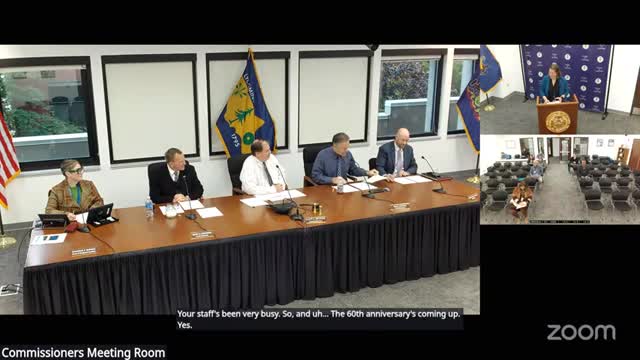STEP says substitute-aid pool kept hundreds of child-care shifts open; warns LIHEAP crisis referrals paused
Get AI-powered insights, summaries, and transcripts
Subscribe
Summary
STEP reported its substitute-aid pool has kept more than 400 classroom shifts open across Lycoming County, credited ARPA funds for start-up, and warned that the LIHEAP crisis program will not begin taking referrals Nov. 1, a pause STEP officials said would put older and female-headed households at risk.
Joanna, a representative of STEP (the county’s community action agency), told Lycoming County commissioners on Wednesday that a year-old substitute-aid pool has kept more than 400 classroom shifts open at local child-care sites and helped address local early-education staffing shortages.
The program connects trained, vetted substitute aides with licensed child-care providers through a scheduling app, Joanna said, and currently serves eight providers representing 13 sites in Lycoming County. STEP reported 13 active substitute aides, one additional aide in onboarding, and an average of roughly 41 shifts filled per month; those shifts, Joanna said, keep classrooms open for groups typically serving 15 to 18 children.
The substitute-aid pool was launched with Lycoming County ARPA funds, Joanna said, and STEP staff credited that money with enabling the rapid rollout. “We operationalized it by October, and now we’re one year out,” Joanna told the commission. STEP said six substitutes have since moved into permanent early-care positions while remaining available in the pool.
Why it matters: county officials said the program prevents classroom closures that would otherwise leave parents without child care and reduce workforce participation. That, staff and commissioners said, frames child care as a component of workforce development.
In addition to the program update, STEP raised two broader funding concerns. Joanna said the federal LIHEAP (Low Income Home Energy Assistance Program) crisis program was not going to be accepting applications or referrals starting Nov. 1, creating an immediate gap for residents who rely on emergency heating repairs and same-day contractor support. STEP staff said that in Lycoming County last year about half of LIHEAP crisis recipients were over age 60 and about 70% were women; those figures were offered by the presenter as local usage data.
STEP also described borrowing and cash-flow pressures tied to state and federal reimbursement delays. The agency said it used a Commonwealth Treasury bridge loan to cover operations while awaiting reimbursements, noting the bridge loan carries a 4.5% interest rate. STEP said it paid about $68,000 in interest last year and expects interest costs to be substantially higher this fiscal year if state budget impasses continue.
STEP said it has sought help from federal representatives and has shared materials with county leadership about the local impact of delayed state and federal payments. The agency also reported a new grant from the United Way of North Central Pennsylvania to expand the substitute-aid model into Tioga County and said staff will present the program at a statewide community-action conference next week.
Joanna said she would provide commissioners with written success stories and follow up with county staff (Mary Rose was identified in the meeting as the county contact) rather than take additional meeting time.
Ending
County commissioners thanked STEP staff for the update and for work using ARPA funds to support early-childhood workforce stability. STEP requested continued attention to the LIHEAP pause and to state- and federal-level budget decisions that affect local service delivery.
